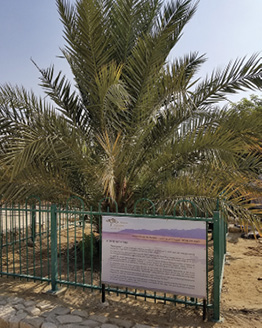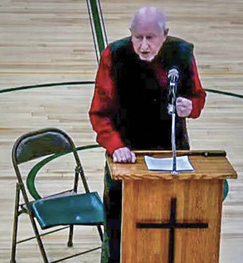Items of interest from various sources of religious news and opinion, in print and on the web.
Don’t Dress Like an Anglican Priest in Uganda—Or Else. The Anglican church in Uganda has taken out a legal trademark on priests’ vestments in an attempt to stop evangelicals and Pentecostals from wearing the attire, which indicates ordination and office. Bishop Nathan Ahimbisibwe said people who are not Anglican priests have been abusing the vestments, and now the trademark gives the church in Uganda a legal tool to stop it. “We wish to inform you that this is our attire so that once you are arrested, you will have no defense,” Ahimbisibwe said. At least one evangelical minister plans to sue. Silliman, Daniel. “Anglicans try to stop others from wearing vestments.” Christianity Today, vol. 68, no. 7, November/December 2024, p. 138.
ASU Cancels Prof’s “Intro to Christianity” Course . . . Because He’s a Christian. Professor Owen Anderson of Arizona State University has had his course on Christianity removed from the general education curriculum on the grounds that such a course should not be taught by one who believes in it himself. A colleague complained that Professor Anderson has “a Christian way of teaching Christianity, which is to say the course does not adequately provide the kinds of critical, reflective, disciplinary skills that students need to have in order to study religious traditions.” A review panel agreed. Anderson is fighting the removal of his course, citing the fact that, in other cases, the religious studies department actually prefers when the instructor himself is an adherent; this is true, e.g., of Islamic classes. “This is only directed one way,” said Anderson, “toward Christians and Christianity.” Kabbani, Jennifer. “Christian professor’s ‘Intro to Christianity’ class torpedoed at ASU.” Religion. TheCollegeFix.com, 20 September 2024. Web. 20 December 2024.

Judean Date Palm Resurrected After 1500-Year Extinction. The Judean date palm was a fruit-bearing tree that once carpeted the Jordan valley from the Dead Sea up to the Sea of Galilee. It was once a vital source of food in the region, up to and including the time of Christ. However, when the Romans destroyed Jerusalem in 70 A.D., they also cut down nearly all of the date palms, in order to deny the resource to their enemies. The tree was almost completely eradicated by the end of the Roman era. Then, in 1964, archaeologists excavating the hilltop fortress of Masada unearthed a large cache of ancient date palm seeds. In 2005, two Israeli professors decided to see if the seeds would grow—and they did! A number of viable date palm trees resulted from the effort, the oldest of which is named “Methusaleh” and had reached a height of twelve feet by 2020. Researchers at the Arava Institute for Environmental Studies at Kibbutz Ketura plan to grow dates resurrected from the seeds using tissue culture, and then establish the trees in commercial plantations. Gillan, Joanna. “The Judean Date Palm: Extinct Tree Resurrected from Ancient Seeds.” Ancient Places. AncientOrigins.net, 17 September 2020. Web. 20 December 2024.

The energy of the young … College students in ILC’s pastoral training program meet for their regular “Theologian Thursday Breakfast” (l-r) Darion Buck, Joel Bernthal, Luke Strike, Troyal Mayhew, Ethan Sydow and Daniel Hein. Behind the camera: Austin Lien

… And the wisdom of aged.
Professor Emeritus Paul Koch addressing students and instructors during the morning chapel service at ILC on December 12, 2024. He startled the students by beginning, “I’m Paul Reinhard Koch, and I taught many of your grandparents...” Now in his 90s, Professor Koch returned to the lectern for the first time in 28 years, delivering an Advent message on the basis of 2 Timothy 3:1-4

